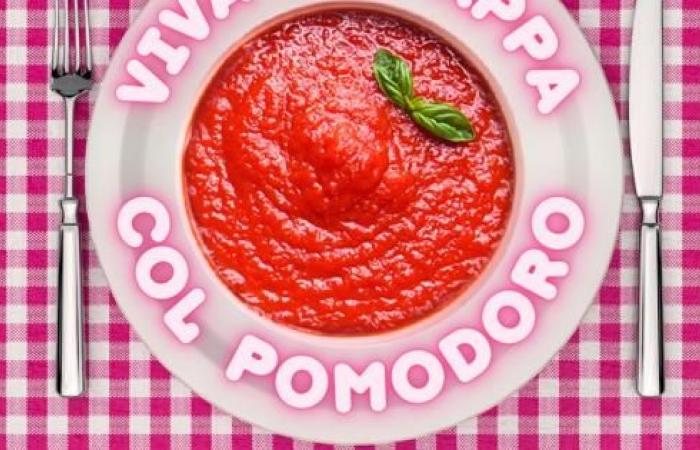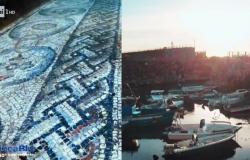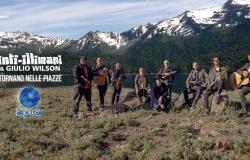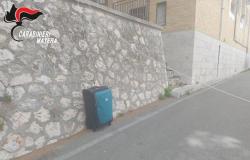
The Viva la Pappa Col Pomodoro festival kicks off from 18 to 20 July 2024, three days of international meetings dedicated to food, art, sustainability and activism, organized by Domus Artist Residency in Galatina and Lecce. Domus Artist Residency continues its close collaboration with the Municipality of Galatina and from this year it has the honor of including the Biblio-Museum Center of Lecce among its supporting partners.
THE THEME
After the previous edition focused on the concept of care through the transformation of Saint Paul the healer into a pop icon, Domus Artist Residency, an association active in Galatina in the field of research, international mobility and contemporary art, returns with its summer program and dedicates its sixth edition al tomato themeits production and the dynamics that revolve around this important food, calling together – between Italy, France and the Mediterranean basin – guests from the world of museum institutions, art, activism and associations and the academic world.
The title of this edition is a semantic game that starts from the traditional “pappa col pomodoro”, a simple tomato soup with bread. In 1965 radios and TVs began to broadcast “Viva la pappa col pomodoro”, composed by the Italian director and actress Lina Wertmüller, together with the composer Nino Rota, played by the singer Rita Pavone; the song, which has entered the history of Italian music and the collective imagination, tells of a people hungry and thirsty for revolution, referring to a peasant dish based on tomatoes, oil and basil. But where do the ingredients of this simple and popular recipe come from? How and by whom are tomatoes grown, harvested, sold and eaten? In a world increasingly sensitive to ecological emergencies, is eating vegetables really a more sustainable way of eating?
THE PROGRAM
These are the reflections on which the guests of the project will discuss, around public tables, between 18 and 20 July, in central places of the cultural debate in Salento: The Polo Biblio Museale of Lecce, with the Castromediano Museum and the Bernardini Library; the historic center of Galatina with its “Pietro Siciliani” municipal library, the historic Gorgoni and Orsini buildings and the headquarters of Domus, an evocative residence in which, throughout the year, a full program of international residencies is organized.
Through this program of meetings and public tables, starting from Thursday 18 July in the morning, in the Domus headquarters in Via Arco Cadura 15, and then in the following days, both in Lecce and in the historic center of Galatina, we want to address several transversal reflections, touching on contemporary art, the relationship between “food” and art and the professional conditions of labourers, often migrant people paid around 1/3 euro an hour, with the ultimate aim of analyzing the tension between ecological challenges and the impact of globalized capitalism on food and the agri-food industry. How do artists position themselves? Which proposals are put forward by research in the human and social sciences and which by the world of art? The three days of informal and interdisciplinary dialogue in Galatina and Lecce will culminate in an evening, on Saturday 20 July, of video screenings by international artists selected by our scheduled guests.
The locations and times of each day and activity, from 18 to 20 July, can be consulted in detail on the Domus website: https://www.domus-artistresidency.com/
THE GUESTS
Scientific committee: Rafael Pic – Marta Ponsa; Rafael Pic (Editor-in-Chief of ‘Le Quotidien de l’art’); Marta Ponsa (Art historian, responsible for the artistic projects and cultural activities of the Jeu de Paume); Luigi De Luca (Director of the Castromediano Museum of Lecce and coordinator of the biblio-museum centers of the Puglia Region); Brizia Minerva (Art historian and curator at the Castromediano Museum); Julie Chaizemartin (Project Reporter for the International Press); Fiammetta Fanizza (Associate Professor in environmental and territorial sociology, University of Foggia); Lynda Dematteo (Anthropologist and political scientist, teacher and researcher at EHESS, Paris); Anna Caputo (President of Arci Lecce Solidarietà); Sergio Longo (President of Slowfood Puglia); Frédérique Desbuissons (Professor of art history at the Université de Reims Champagne-Ardenne); Nicolas Surlapierre (Director of the Mac Val museum, Paris); Fabrice Gaignault (Editor-in-Chief of Transfuge magazine); Angelo Cleopazzo (Co-founder of the Southern Rights Association); Eugenio Viola (Artistic Director of the Museum of Modern Art of Bogota, Colombia); Anissa Touati (Transnational independent curator) Fabien Danesi (FRAC Director, Corsica); Cosimo Terlizzi (Director, photographer, video artist); X Farm (Association that promotes public art projects through agriculture); Luigi Coppola (Artist and agroecologist); Luca Coclite (Artist); Giacomo Cavalera (Active farmer, founder of Seminazioni); Giuseppe Pezzulla (director and author); Felipe Pasini (Biologist founder of Amadeco); Lorenzo Madaro (Curator, Professor of History of Contemporary Art, Brera Academy of Fine Arts, Milan);
“Domus allows dialogue between contemporary art and the human and social sciences. This year too we want to raise awareness among our guests and the local public of a geolocalized problem, but which expands and intertwines with broader international dynamics. This year we are putting the emphasis on the tomato: we will try to do it starting from the connotation of the tomato in Italian culinary culture, we will start from the cliché, from the pop image of the tomato. We will analyze its symbolism in the art panorama and in its classical representation. This analysis will allow us to address the political and economic aspects that hide behind this vegetable: large-scale agri-food distribution, the exploitation of labourers, the dynamics of gangmastering, but also the enrichment of numerous multinationals. (Romina De Novellis, artistic director of Domus Artist Residency)
Domus, founded in 2019 and entirely dedicated to the Mediterranean, defines itself through a transversal, inclusive and ecofeminist approach. Domus is an international project dedicated to research, creation and sharing of practices and knowledge through the participation of local and international guests. Domus intends to promote research in the field of contemporary art through interdisciplinary reflections and transnational dialogues on key themes closely linked to Mediterranean geography: gender identity, environment and migratory flows.





